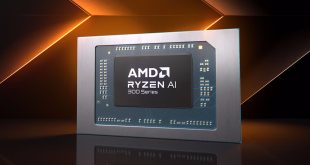Will Intel reduce overclocking options on its next generation processors? That's what KitGuru spies are hearing and it is slightly worrying. A concerned KitGuru investigates.
Back in the 90s, AMD managed to stretch out a significant lead over Intel in the enthusiast space for one simple reason. Intel doggedly refused to let go of the Pentium 4 processor. Even when magazines like Custom PC proved that if you overclocked a Pentium 3 to the same speed as a Pentium 4, the Pentium 3 was faster, Intel hung in there. Pentium 4 was the workhorse part for the business community, but did little (if anything) to excite enthusiasts.
At the same time, AMD had the ‘pencil line OC' which made people smile, and its Athlon processors became even more popular once thermal switches had been installed which would allow the chip to shut down and save its own life if an over enthusiastic overclocker decided to take it all 1MHz too high.
Conroe changed all that. From the time that the first Core processors hit the market, all of the serious clockers were drawn to the blue side.
All of Intel's chips would overclock nicely and, once in every generation, there would be a Q6600-type chip which would become the O/C community's little darling/cell-house b*tch.

It was almost 12 months ago when Intel revealed the full range of Core i3, i5 and i7 chips – each range with its own O/C champion.
For the Core i7, the 920D variant was hugely popular. If you had less money, then the i5 750 clocked past 4GHz easily and the unlocked 655k/875k chips were just nuts – clocking up to 4.8GHz.
While these chips were plenty glamorous, attractive and meaty in the performance department, they also cost money. Clockers with serious budget restrictions were drawn to the Core i3 530. Available from around £78, this chip would clock to almost 4GHz with the bog standard cooler supplier and when you locked a system at ~4GHz stably, the Core i3 530's dual-core design was perfect for game play.
While magazines like PC Pro didn't seem to rate the chip as highly as Intel's Q8400, because its performance at stock speed was mundane, system builders like YOYOTech quickly found they could slice & dice the competition in a group test by adding a decent cooler and turning the clocks to 4GHz, you suddenly had a chip capable of holding its own against a Core i5 750.
For example, we've seen Crysis tested at 1680 x 1050 with a little AA, and the average FPS delivered by the stock speed Core i5 750 and the overclocked Core i3 530 was almost identical.
So now we're hearing that when Intel's Sandybridge processors hit, the Core i3 series will not overclock.
Mis-communication ? Maybe. It's possible that we have mis-understood and the new chip will have limited overclocking capability – but we think not.

KitGuru says: If Intel does return to the dark ages of processor locks, last seen with the dire Pentium 4, then the onus will really be on AMD to step up to the plate with a massively overclockable processor for less than £100. Could it be that Intel's hierarchy has made a small decision that could have serious, long-term ramifications for AMD's share of the processor market?
Let us know what you think below or in the KitGuru forum.
 KitGuru KitGuru.net – Tech News | Hardware News | Hardware Reviews | IOS | Mobile | Gaming | Graphics Cards
KitGuru KitGuru.net – Tech News | Hardware News | Hardware Reviews | IOS | Mobile | Gaming | Graphics Cards



In a way it makes sense, the i3 chips are meant to be the poor mans option right?
Wont be a popular move if its true. you seem rather unsure faith so ill not put too much into the post.
I read that Intel might start shipping processors soldered to mainboard. Might make sense that Intel would want to control the clocks and prices no?
Eh, I heard no Intel Sandybridge CPUs will OC except the K series processors. I am not sure how big a premium they will charge for K series chips but I am sure there will be.